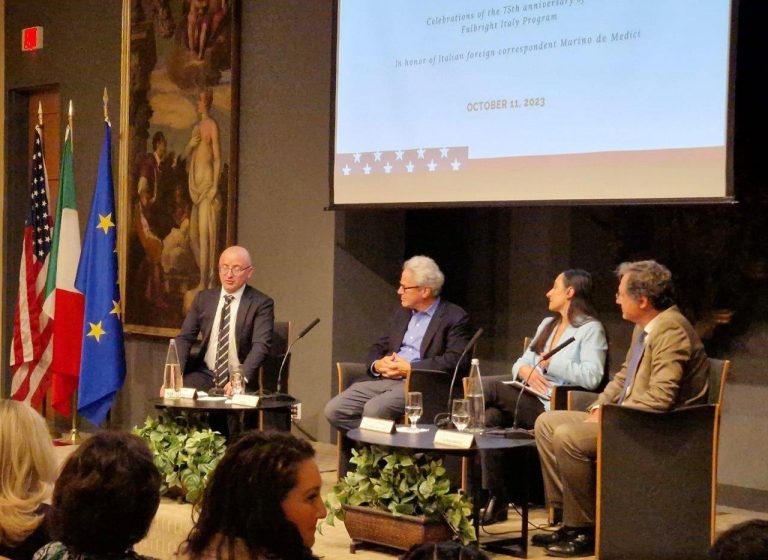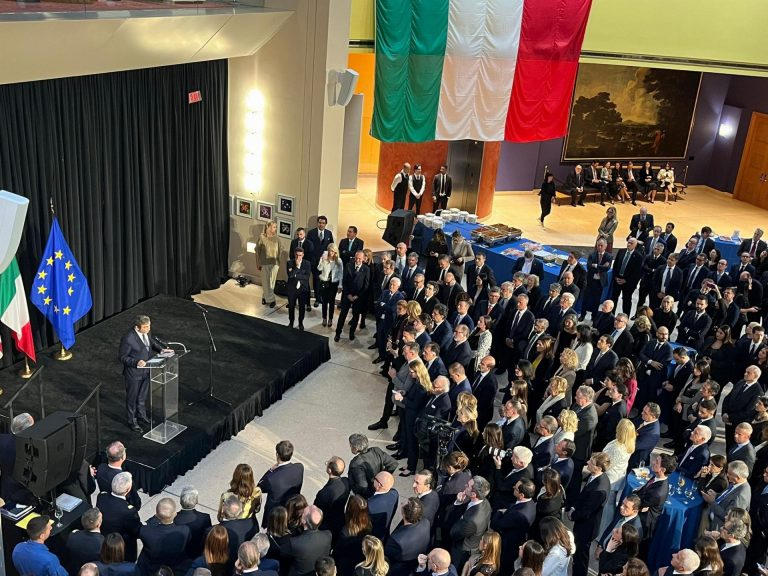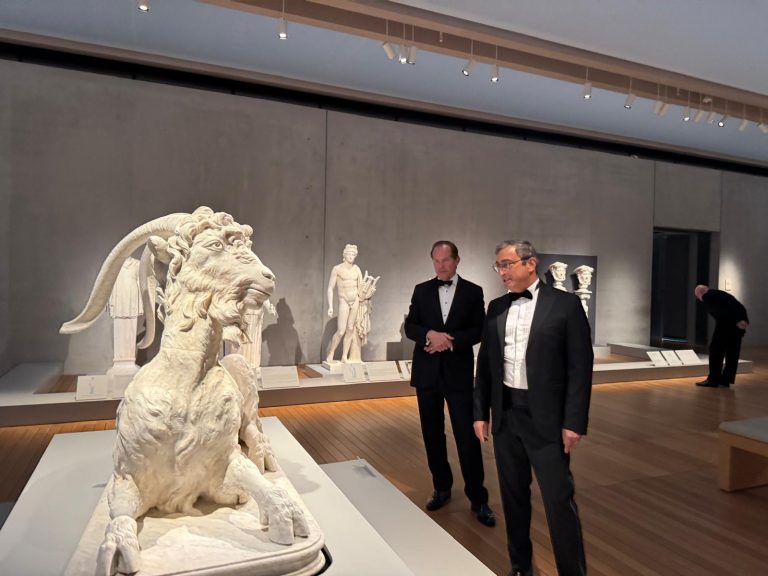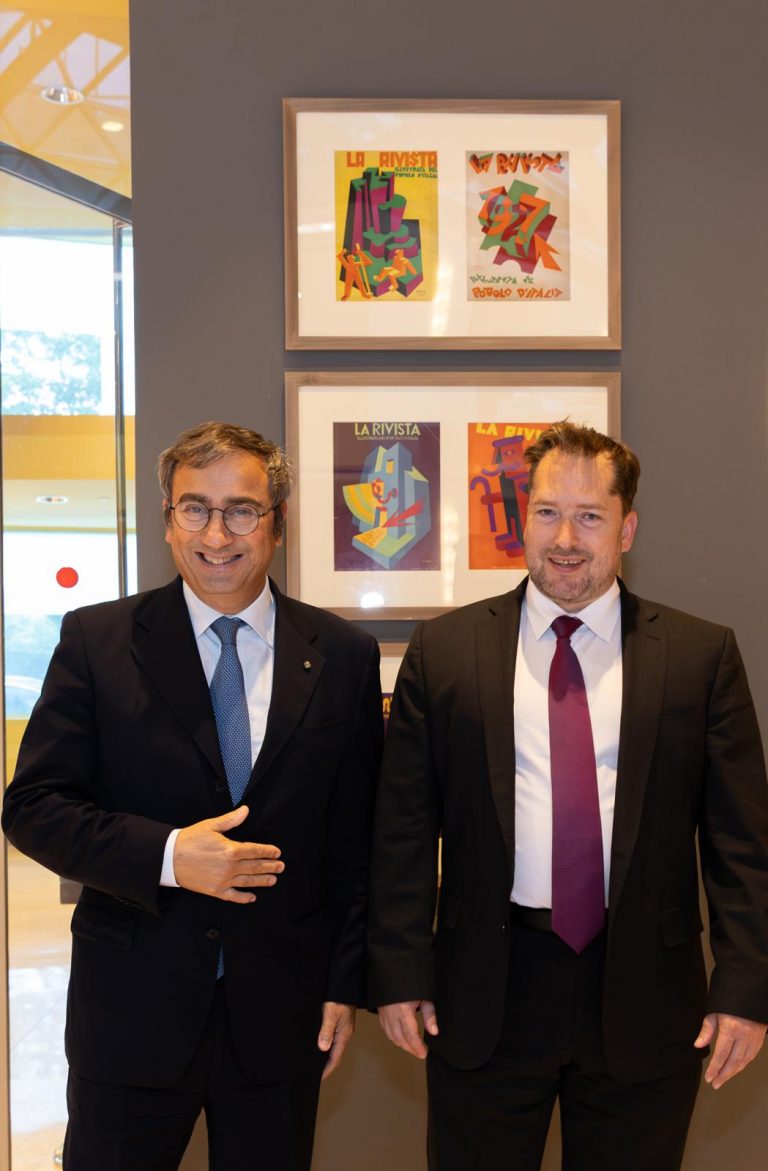Washington DC, October 12, 2023
Ambassador Mariangela Zappia and Michael Trager, Vice President of the Fulbright Foreign Scholarship Board, opened yesterday evening the seminar titled “The Fulbright Program and the Role of Foreign Correspondents in the United States” at the Italian Embassy’s Auditorium in Washington DC, commemorating the 75th anniversary of the Fulbright Commission for Cultural Exchanges between Italy and the United States, established on December 18, 1948.
“The Fulbright program is an unparalleled example of cultural diplomacy. It promotes mutual understanding between our nations and communities, advocates for diversity and inclusion, peace, and democracy, aligning with the broader foreign policy goals of the United States and Italy,” highlighted Ambassador Zappia in her opening remarks. “The fact that the Fulbright program was mentioned in the joint statement on July 27 at the end of the meeting between President Biden and Prime Minister Meloni confirms the importance of the Fulbright program for our countries,” emphasized Michael Trager. Both acknowledged the work and dedication of American and Italian Fulbrighters that keeps the Fulbright program vibrant and relevant, both today and in the future.
Co-financed by the Italian Ministry of Foreign Affairs and International Cooperation and the U.S. Department of State, the Fulbright program is a cornerstone of relations between Italy and the United States. The program has facilitated over 14,300 bilateral exchanges among students, artists, professors, and university faculties. Each year, the Commission awards 100 scholarships to Italian and U.S. students, focusing on an increasingly diverse range of fields of study. The ultimate goal of the program is to bring back to the home country the knowledge gained during the study experience, following a rigorous selection process.
The Fulbright US-Italy program has produced 8 Nobel Prize winners (Peter A. Diamond, Economics, 2010; Oliver Williamson, Economics, 2009; Riccardo Giacconi, Physics, 2002; James M. Buchanan, Economics, 1986; Franco Modigliani, Economics, 1985; Carlo Rubbia, Physics, 1984; Kenneth Arrow, Economics, 1972; Emilio Segre, Physics, 1950), 14 Pulitzer Prize winners, 6 MacArthur Foundation Fellows, and 7 U.S. ambassadors. Notable figures include Giuliano Amato and Lamberto Dini, former Italian Prime Ministers and Fulbright alumni.
In the last decade, under the leadership of Paola Sartorio, Executive Director of the Fulbright US-Italy Commission, university, regional, and private sector partnerships have been established. These include the “Fulbright-Enel Foundation Awards on Climate Change” and “NIAF-Falcone Foundation to Promote the Rule of Law,” Fulbright-NIAF-Georgetown Education programs at Georgetown University, the Research Lectureship in the Sciences, Business, and Communications at Seton Hall University, and newly created agreements with LUISS in the fields of business, government, law, and political economy, as well as with Florida Polytechnic in computer science and engineering.
This year’s event was dedicated to Marino de Medici, also a Fulbright alumnus and dean of foreign correspondents in DC, who passed away on November 15 last year. His long stay in Washington allowed him to chronicle the country during six presidential administrations, from Kennedy to Reagan. He wrote about the Watergate scandal, the Vietnam War, civil rights protests by African Americans, and all the political and economic issues that marked the country during those years. In an interview with the National Journal in 1985, de Medici explained, “The role of a foreign correspondent is not only to report the news accurately but to clarify, analyze, and explain what is happening in the United States and interpret its significance and effect for one’s own country and the rest of the world.”


















